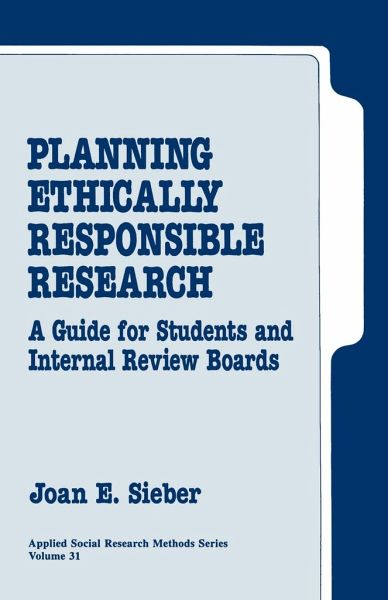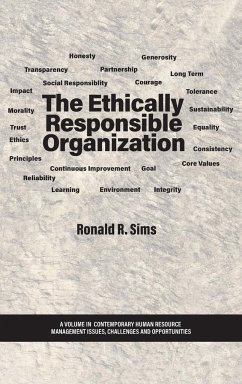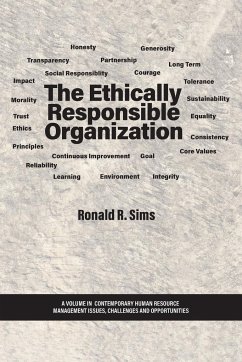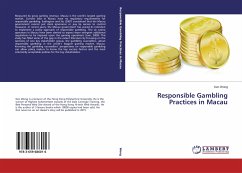
Planning Ethically Responsible Research
A Guide for Students and Internal Review Boards
Herausgeber: Sieber, Joan E.
Versandkostenfrei!
Versandfertig in 1-2 Wochen
52,99 €
inkl. MwSt.

PAYBACK Punkte
26 °P sammeln!
"Joan E. Sieber does a good job of giving the reader a brief crash course about the historical context in which ethical concerns in human research arose, subsequent federal regulations, and how IRBs came about and how they work. The author's main purpose, however is to give those involved with social science research the practical knowledge to plan ethically sensitive research; one result of that planning should be that researchers will then have little problem getting their research approved by IRBs. The book achieves that purpose quite well; it deals concretely with basic issues such as privacy and confidentiality, deception, informed consent, assessment of potential research risk and benefits, and problems involving vulnerable populations. . . . The book (also) has a number of features that would make it useful for students as a good addition to a research or an ethics course."
--Contemporary Psychology
"Joan E. Sieber's book merits reading, rereading, and use as a reference guide by students, seasoned researchers, and research ethics committees."
--The Library Quarterly
"The writing style is clear, and the book is logically organized, moving from definitions of terms to an overview of general ethical principles applicable to research with humans. The book is user-friendly and offers many concrete examples as well as exercises, case studies, discussion questions, a protocol checklist, and sample consent and assent forms for use with children. An additional strength of the book is its presentation of a model to identify and weigh risk-related factors in social research."
--Rehabilitation Nursing Research
"This book . . . provide (s) a useful introduction to ethicsin research and should serve as a practical handbook for those researchers and members of review boards who need guidance on typical regulations and procedures. This work definitely fills a gap in the literature on research by addressing issues generally not given much attent
--Contemporary Psychology
"Joan E. Sieber's book merits reading, rereading, and use as a reference guide by students, seasoned researchers, and research ethics committees."
--The Library Quarterly
"The writing style is clear, and the book is logically organized, moving from definitions of terms to an overview of general ethical principles applicable to research with humans. The book is user-friendly and offers many concrete examples as well as exercises, case studies, discussion questions, a protocol checklist, and sample consent and assent forms for use with children. An additional strength of the book is its presentation of a model to identify and weigh risk-related factors in social research."
--Rehabilitation Nursing Research
"This book . . . provide (s) a useful introduction to ethicsin research and should serve as a practical handbook for those researchers and members of review boards who need guidance on typical regulations and procedures. This work definitely fills a gap in the literature on research by addressing issues generally not given much attent
This book provides readers with the practical knowledge needed to plan ethically responsible social and behavioural research. It includes: detailed instructions on development of an effective protocol; methods for handling issues of consent, privacy, confidentiality and deception; ways to assess risk and benefit to optimize research outcomes; and how to respect the needs of vulnerable research populations such as children and the urban poor, including those at risk from HIV infection.














